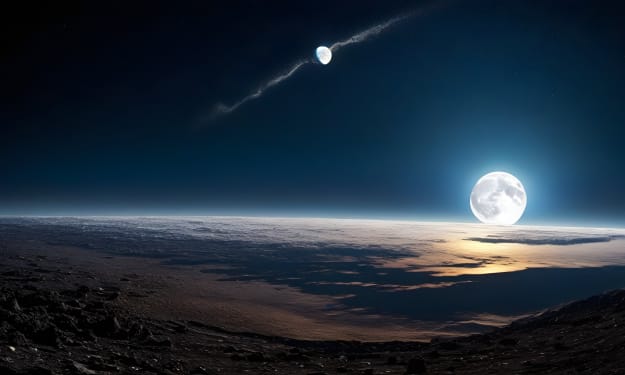
A long, long time ago, Earth looked very different. All the land was stuck together in one big piece called Pangea, and it was full of amazing and sometimes scary creatures. Think of big dinosaurs, but before them, there were even bigger animals ruling the Earth. This exciting time is known as the Permian period, and it started a whopping 300 million years ago.
Back then, our world had this huge supercontinent called Pangea, and a gigantic ocean around it called Panthalassa. The Permian period began when Earth was coming out of a time when it was really cold. As the early Permian days went on, Earth became warmer, and it turned into a place with lots of different plants and animals.
But, you know, Earth is always changing. Over the next 50 million years, it got hotter and drier, and something really bad happened. Scientists call it the "great dying," and it wiped out almost everything that lived on Earth. This was the most terrible event our planet has ever seen, and there have been five of them!
Before we talk more about the sad part, let's go on an awesome journey back to the Permian period. Imagine going back 300 million years. You'd find yourself in the middle of Pangea, where all the land was just finishing crashing together. It might be a bit chilly, so bring a jacket. But don't worry, things are about to get interesting!
As the early Permian went on, the world started to warm up, and Pangea became a green and lush place. Picture huge forests and amazing creatures. Volcanoes played a big role, changing the climate and making the land ready for new plants and animals. Around 290 million years ago, the first plants with seeds, called gymnosperms, appeared and spread all over Pangea.
In these ancient forests, you'd find giant cockroaches, cicadas, and beetles. But the real star was Dimetrodon, a big lizard with a sail on its back. It was like a super-duper predator with sharp teeth. Exciting, right?
Moving on to the middle Permian, mammal-like reptiles called therapsids took over. Some were big and ate plants, while others were smaller and liked to munch on meat. Earth kept getting hotter, and the ocean was full of sharks and fish. On the land, you'd meet listrosaurus, a plant-eating creature that looked like a mix of a lizard and a pig. How cool is that?
But, uh-oh, things were changing again. Volcanoes were releasing stuff into the air, making it hard to breathe. It got really hot, like an oven. Sadly, the Permian period didn't end well. About 252 million years ago, there was a super sad event called the Great Dying. Almost 90 percent of the plants and animals on Earth disappeared.
Scientists think big volcanic explosions caused it. Lots of ash blocked out the sunlight, and it got really cold. Plants couldn't grow, and animals didn't have food. Then, things got even worse because of too much carbon dioxide. The temperatures rose a lot, the super ocean lost its oxygen, and most of the sea animals and land animals went away. Over 95 percent of sea creatures and more than 70 percent of land animals became extinct.
It's a pretty sad story, but it reminds us that Earth has been through a lot, and we need to take care of it. Even though the Permian period had its ups and downs, it's part of our planet's history, and we can learn from it to make sure our Earth stays a wonderful home for all of us.
Well, goodbye folks! Thank you for being awesome! Drop your questions, comments, and likes and make this place lively and fun.
Stay curious and keep being amazing!
Goodbye for now, and until our next journey together!!
About the Creator
Digi Ben
Welcome to the world of insightful and engaging articles! Whether you're seeking in-depth analyses, practical guides, or entertaining narratives, my articles here are tailored to cater to diverse interests. Stay tuned!






Comments
There are no comments for this story
Be the first to respond and start the conversation.